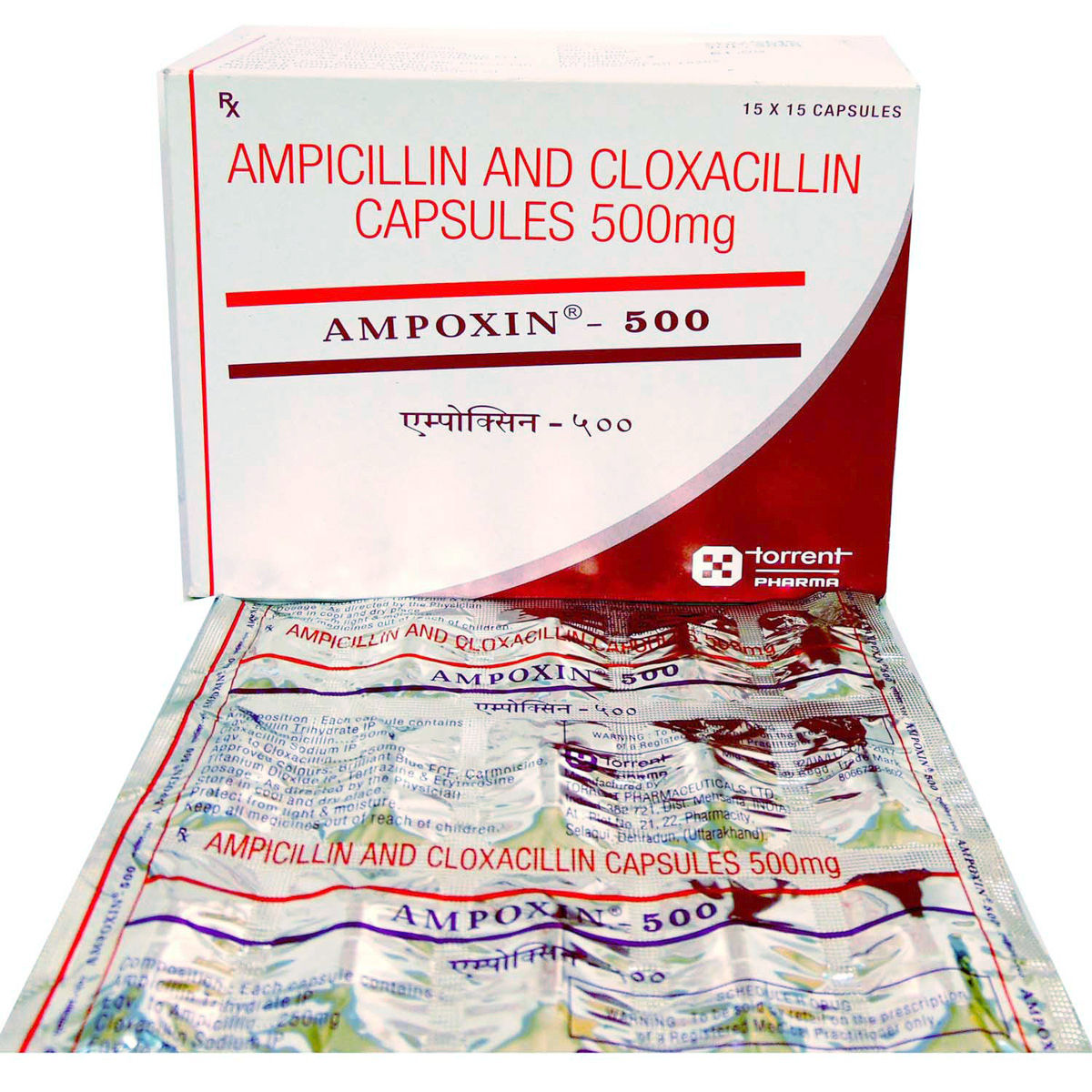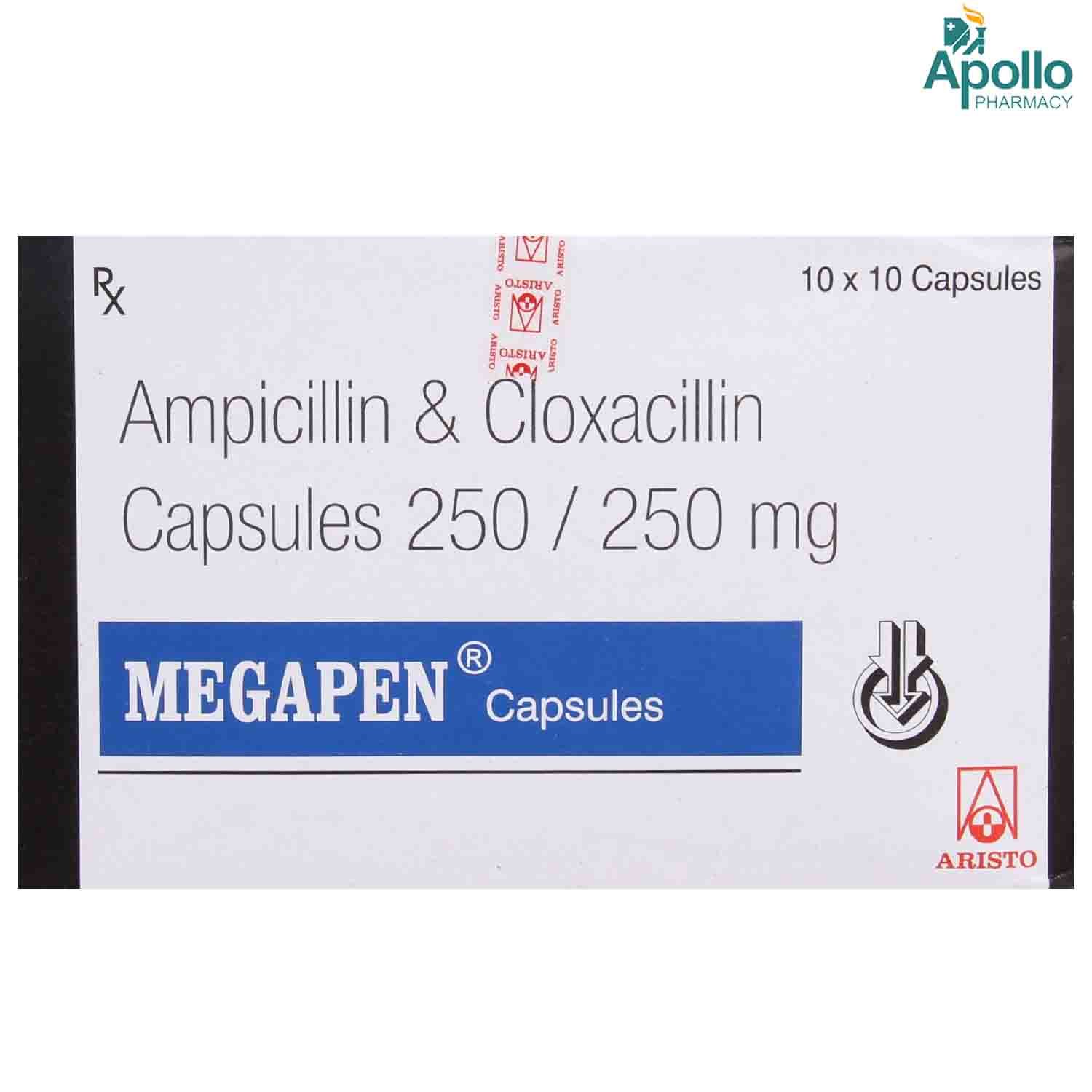Syncocin 250mg/250mg Capsule
₹39.6*
MRP ₹44
10% off
₹37.4*
MRP ₹44
15% CB
₹6.6 cashback(15%)
Free Delivery
With Circle membership
(Inclusive of all Taxes)
This offer price is valid on orders above ₹800. Apply coupon PHARMA10/PHARMA18 (excluding restricted items)
Know Your Delivery Time
Provide Delivery Location

Available Offers
 Prescription drug
Prescription drugWhats That

Secure Payment

India's Most Trusted Pharmacy

Genuine Products
Composition :
Manufacturer/Marketer :
Consume Type :
Return Policy :
About Syncocin 250mg/250mg Capsule
Syncocin 250mg/250mg Capsule belongs to the group of medicines called 'antibiotics' used to treat a wide range of bacterial infections. It is a 'broad-spectrum antibiotic' which treats bacterial infections of the ear, nose, throat, bones, lungs, and post-operative wound infections. Bacterial infections are caused due to the multiplication of harmful bacteria inside or on the body.
Syncocin 250mg/250mg Capsule contains two antibiotics, namely: Ampicillin and Cloxacillin. Syncocin 250mg/250mg Capsule works by preventing the formation of bacterial cell covering, which is necessary for their survival. Thereby kills the bacteria and helps in treating and preventing bacterial infections.
The dose and duration of Syncocin 250mg/250mg Capsule may vary depending upon your condition and the severity of the infection. In some cases, Syncocin 250mg/250mg Capsule may cause common side-effects such as diarrhoea, rashes, nausea, and vomiting. Most of these side-effects do not require medical attention and resolve gradually over time. However, you are advised to talk to your doctor if you experience these side-effects persistently.
Inform your doctor if you have any allergy (against any antibiotic), kidney or liver problems. Do not take Syncocin 250mg/250mg Capsule on your own as self-medication may lead to antibiotic resistance in which antibiotics fail to act against specific bacterial infections. Consult your doctor if you are pregnant or breastfeeding. Avoid alcohol consumption to prevent unpleasant side-effects. Inform your doctor about your health condition and medications to rule out any unpleasant side-effects/interactions.
Uses of Syncocin 250mg/250mg Capsule
Directions for Use
Medicinal Benefits
Syncocin 250mg/250mg Capsule belongs to the group of antibiotic medicines called penicillins. Syncocin 250mg/250mg Capsule is composed of two antibiotics, namely: ampicillin and cloxacillin. It is used to treat bacterial infections of the ear, nose, throat, bones, lungs, and post-operative wound infections. It is a broad-spectrum antibiotic which is effective against both gram-positive and gram-negative bacteria. Syncocin 250mg/250mg Capsule works by preventing the formation of bacterial cell covering, which is necessary for their survival. Thereby kills the bacteria and helps in treating and preventing bacterial infections.
How Syncocin 250mg/250mg Capsule Works
Storage
Side Effects of Syncocin 250mg/250mg Capsule
- Diarrhoea
- Rash
- Nausea
- Vomiting
What if I have taken an overdose of Syncocin 250mg/250mg Capsule
Drug Warnings
Before starting Syncocin 250mg/250mg Capsule, please inform your doctor if you have any allergy to any penicillin antibiotics, kidney/liver problems, infectious mononucleosis (viral infection with sore throat and fever), or leukaemia (blood cancer). Consult your doctor immediately if you experience skin rash or prolonged, significant diarrhoea with abdominal pain. Talk to your doctor before taking Syncocin 250mg/250mg Capsule if you had diarrhoea after taking antibiotics or inflammation of the bowel. Consult your doctor if you are pregnant or breastfeeding. Avoid alcohol consumption while taking Syncocin 250mg/250mg Capsule to prevent unpleasant side-effects.
Drug-Drug Interactions
Drug-Drug Interactions
Login/Sign Up
When BCG vaccine is used with Syncocin 250mg/250mg Capsule, its effectiveness may be reduced.
How to manage the interaction:
Taking Syncocin 250mg/250mg Capsule with BCG vaccine can lead to an interaction, please consult a doctor before taking it. Do not discontinue the medication without consulting a doctor.
Co-administration of methotrexate with Syncocin 250mg/250mg Capsule can increase the risk or severity of developing serious infections.
How to manage the interaction:
Although there is a possible interaction between Syncocin 250mg/250mg Capsule and methotrexate, you can take these medicines together if prescribed by your doctor. However, if you experience any symptoms such as nausea, vomiting, mouth ulcers, paleness, fatigue, dizziness, fainting, unusual bleeding or bruising, fever, chills, sore throat, body aches, Consult a doctor. Do not stop using any medications without consulting to a doctor.
Co-administration of Methotrexate with Syncocin 250mg/250mg Capsule can increase the levels and side effects of Methotrexate.
How to manage the interaction:
Although there is a possible interaction between methotrexate and Syncocin 250mg/250mg Capsule, you can take these medicines together if prescribed by your doctor. However, if you experience any symptoms such as tiredness, dizziness, fainting, unusual bleeding or bruising, chills, fever, sore throat, body pains. Consult a doctor immediately. Do not stop using medications without a doctor's advice.
Co-administration of Syncocin 250mg/250mg Capsule with Cholera, live attenuated together may reduce the activity of the vaccine.
How to manage the interaction:
If you are currently being treated with Syncocin 250mg/250mg Capsule or have been treated within the last 14 days, talk to your doctor before receiving cholera vaccine, live. Do not discontinue the medication without consulting a doctor.
Drug-Food Interactions
Drug-Food Interactions
Login/Sign Up
Diet & Lifestyle Advise
Antibiotics can alter the useful bacteria in the stomach, which help in digestion. Therefore, you are advised to take foods rich in probiotics such as yoghurt/curd, kefir, sauerkraut, tempeh, kimchi, miso, kombucha, buttermilk, natto and cheese.
Eat fibre-rich food like whole grains, beans, lentils, berries, broccoli, peas and bananas.
Avoid foods rich in calcium, grapefruit and grapefruit juice as they might hinder the absorption of antibiotics.
Avoid consumption of alcohol and usage of tobacco.
Habit Forming
Therapeutic Class
Syncocin 250mg/250mg Capsule Substitute

Ampoxin 500 Capsule 15's
₹7.08per tabletMegapen Capsule 10's
₹6.93per tabletAmpiclox Capsule 10's
₹6.75per tabletAmpoxin 250 Capsule 15's
₹3.72per tabletMediclox Plus Capsule 10's
₹14.58per tablet
Product Substitutes
Alcohol
Unsafe
Limit consuming alcohol while taking Syncocin 250mg/250mg Capsule to avoid unpleasant side-effects.
Pregnancy
Caution
Please consult your doctor if you are pregnant; your doctor will prescribe Syncocin 250mg/250mg Capsule only if the benefits outweigh the risks.
Breast Feeding
Caution
Please consult your doctor if you are breastfeeding; your doctor will decide if Syncocin 250mg/250mg Capsule can be taken by breastfeeding mother's or not.
Driving
Safe
Syncocin 250mg/250mg Capsule does not affect your ability to drive.
Liver
Caution
Dose adjustment may be needed. Please consult your doctor if you have liver impairment/liver disease before taking Syncocin 250mg/250mg Capsule.
Kidney
Caution
Dose adjustment may be needed. Please consult your doctor if you have kidney impairment/kidney disease before taking Syncocin 250mg/250mg Capsule.
Children
Safe if prescribed
Syncocin 250mg/250mg Capsule is safe for children if prescribed by a doctor. The dose and duration may vary depending upon the age and severity of the infection.
FAQs
Country of origin
Manufacturer/Marketer address
Disclaimer
Author Details
We provide you with authentic, trustworthy and relevant information






















